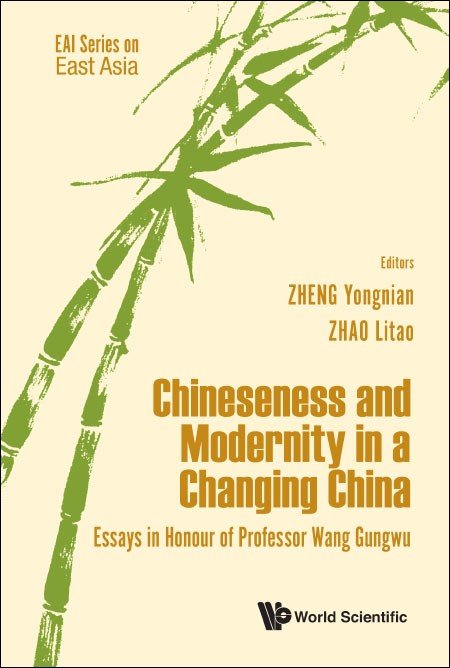System Upgrade on Tue, May 28th, 2024 at 2am (EDT)
Existing users will be able to log into the site and access content. However, E-commerce and registration of new users may not be available for up to 12 hours.For online purchase, please visit us again. Contact us at customercare@wspc.com for any enquiries.
This book is a collection of essays in honour of Professor Wang Gungwu. Professor Wang is not only a great historian on Chinese history in general and the Chinese overseas in particular, but has much wider influence through remarkable domain crossing, namely spatial crossing characterised by geographical straddling between inside and outside of China, temporal crossing from the ancient past to the contemporary, inter-disciplinary crossing from history to the social sciences, and intellectual crossing from the academia to public activism. He has been a long-lasting source of inspiration for understanding some of the most pressing and complex issues in our times, including the nature of China's rise and its implications for the regional and world order. In a nutshell, this book presents Wang as a highly active educator-scholar who has achieved the highest academic standard as well as far-reaching influence over issues that concern all walks of life.
By focusing on the theme of Chineseness and China's modernity, this book adds depth to the analysis of China's rise and its implications for the region and the world. It contains a chapter providing the most comprehensive and updated review of Wang's scholarship thus far. Another chapter demonstrates how Wang, based on his deep understanding of Chinese civilisation and history, articulates a distinct view of the world order that differs from either the thesis of "Thucydides's trap" or the advocacy of mutual accommodation. Interestingly, this book also includes a chapter that highlights Wang's "Southeast Asian-ness", suggesting that Wang's scholarship cautions against not only western-centric views towards China, but also Sino-centric views towards Southeast Asia. In short, this edited volume is both a reference book for understanding Wang's scholarship and an extension of his scholarship to the analysis of China's growing international influence and its implications for the world order.
Sample Chapter(s)
Introduction
Contents:
- Introduction (ZHENG Yongnian and ZHAO Litao)
- Approaches to History and Domain Crossings of a Pioneering Scholar: Wang Gungwu and His Scholarship (HUANG Jianli)
- The Southeast Asian-ness of a China Scholar (Anthony REID)
- History Meets Policy in the Age of Donald Trump and Xi Jinping (Paul EVANS)
- Globalisation and the Chineseness of the Chinese State (ZHENG Yongnian)
- "Chineseness" in History Textbooks: The Narrative on Early China (QIAN Jiwei and Ryan HO)
- The Logic of Political Reform in China: 1978–2018 (ZHENG Yongnian)
- Party Modernisation and Bureaucratic Reform in the Era of Xi Jinping (Kjeld Erik BRØDSGAARD)
- Decline and Repositioning of the Communist Youth League in China (SHAN Wei and CHEN Juan)
- Indigenous Technology as Chinese Modernity (ZHAO Litao)
- The Use of History in Divided China: Diverging Reappraisals of the Kuomintang in Mainland China and Taiwan (QI Dongtao and Ryan HO)
- Cross-Strait Relations in the Wake of Taiwan's January 2016 Election: Taiwan's Narratives (John F COPPER)
- A Nanyang Approach to the Belt and Road Initiative: Malaysia and Its Dilemmas (LIU Hong and LIM Guanie)
- Beijing's New Policy Towards the Chinese Overseas: Some Reflections (Leo SURYADINATA)
- China's Rise, Globalisation 4.0 and Innovative Global Governance (WANG Huiyao)
Readership: Academics, professionals, policy-makers and students interested in China's Economic Modernisation and Structural Changes.
























